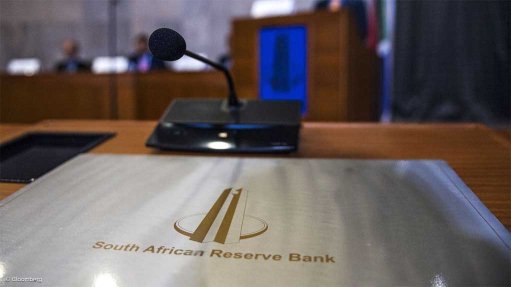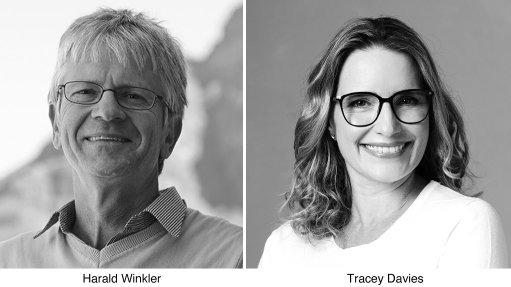Truth behind Burkina coups
Would Thomas Sankara be turning in his grave at the events occurring in the country he renamed Burkina Faso – the land of uncorruptible people? Sankara, the intellectual powerhouse of post-independence pan-Africanism, launched a range of sweeping reforms, removing extreme powers from traditional chiefs, clamping down on corruption and embezzlement, and equalising the role of women. His murder in 1987 caused shock waves across Africa’s post-independence era and elevated his status to that of murdered Democratic Republic of Congo leader Patrice Lumumba.
Now Burkina Faso has succumbed to repeated bouts of military rule under the guise of a new nationalism, renewed sovereignty, and hostility to outside forces, both multilateral – the Economic Community of West African States and the United Nations – and Westerners such as the French, the Americans and the European Union. But the truth is a little more banal. The coups have all been a precursor to Russian President Vladimir Putin’s bid to re-create the defunct Soviet empire. Burkina Faso, Mali and Niger were all countries that fell under the influence of the Soviet bloc prior to its implosion in 1991. The military junta has merely swapped out relations with its former colonial power, France, to an aspirant neo- colonial power – one with far less capital or development intent.
Captain Ibrahim Traoré – a self-professed follower of Sankara’s pan-Africanist ideology – took power in September 2022 from within the existing military junta. He assumes an antagonistic position towards France, accusing it of neocolonial practices and of destabilising the country. Traoré has faced at least one fresh countercoup attempt and so, in November, invited Russia’s mercenary group, Wagner, in – mainly to provide personal protection. A contingent of Russian soldiers reportedly landed in Ouagadougou on November 10. Local sources report their number is too low to join in the fight against the insurgents engulfing the country, but large enough to protect Traoré’s “wobbly throne”. Worth noting, too, is that, with the death of Wagner leader Yevgeny Prigozhin in August, the Russian Defence Ministry now calls the shots.
The arrival in the capital of a Russian praetorian guard follows the pattern Russia has set in Mali, the Central African Republic and Sudan – selecting and then protecting “its man” and so the seat of power. Russia’s objectives are military, strategic and extractive. According to the ‘Blood Gold’ report released by Washington-based think-tank 21 Democracy in December, Russia’s pattern is to secure hold by suppressing opposition and the independent and international press, flood the country with pro-Russia propaganda and terrorise the population into submission. Burkina Faso’s opposition party, Le Faso Autre, reported in late December that the national police had abducted its president, former Foreign Mnister Ablassé Ouédraogo. His whereabouts are still unknown. Human rights organisations report Wagner/Russia’s involvement in the region has seen an increase in ethnic killings, specifically of Peul in Mali, of non-Arab speakers in Sudan and of Fulani in the Central African Republic. Russia demands that its arms and military support be paid for in gold and access to mineral resources and the military bases that Russia encourages its client juntas to order UN and North Atlantic Treaty Organisation allies to vacate.
Gold accounts for about 20% of Burkina Faso’s gross domestic product and 80% of foreign exchange earnings. Miners report that the military regimes have sought to buy gold at the mine gate, which they fear may be used to pay Wagner – which the US and the UK have designated as a terrorist organisation – or find its way into Russia’s expanding gold reserves, which in turn may fund Russia’s war of aggression against Ukraine. The ‘Blood Gold’ report claims that Russia has sourced gold worth $2.5-billion from Africa since its invasion of Ukraine.
There is little doubt that Traoré’s regime has conferred on Russia ‘most favoured nation’ status in recent months: first, after a 32-year absence, Russia has reopened its embassy in Ouagadougou; then a group of disgruntled Burkinabe military officers was dispatched to Moscow for ‘training’ and, finally, the Burkinabe government has signed a deal with Russia to build a nuclear power plant in the country, following a visit to Russia’s Novovoronezh nuclear power plant. Local mining companies claim that Russia’s Nordgold, which now runs three gold mines and has acquired a fourth licence, is receiving special treatment. As if to confirm this, Traoré in December sacked Chamber of Mines director Adama Soro – apparently because he was perceived to be too close to Canadian mining company Endeavour.
However, the main reason for Burkina Faso’s series of coups and countercoups has been ten years of spreading insurgency and insecurity. Insurgents control some 40% of Burkinabe territory and, despite Traoré’s claims, there are few signs his rule has had any military successes. For mining companies operating there, the cost of security has soared. Again under Russia’s tutelage, and alongside Mali and Niger, Burkina Faso has withdrawn from the EU-backed G5 – a five-country Sahelian military organisation tackling Islamist extremist insurgents – and has formed a tripartite military union. The Alliance des États du Sahel (AES) has agreed a defence pact that goes beyond an anti-insurgency agreement. If any pact country is attacked, it will be defended by all three. Defence is its first objective, but it also envisages economic cooperation and its own currency. So far, it has no donor funding. With Russia’s war undermining its domestic economy, the development financing that these countries desperately need is unforthcoming. Burkina Faso and other AES countries’ links to Russia will have consequences. Sweden, a development superpower, in December withdrew aid from Mali for that junta’s support of Russia’s invasion of Ukraine.
There is little or no prospect of a swift restoration of democratic rule; the AES signifies the regional juntas’ digging in. With Russia unable to provide like-for-like military support, or like-for-like military funding, insurgents now operate with confidence across the region. This, with Western and regional sanctions and suspended development, will hit the poorest hardest, which may end popular support for Traoré. As one analyst said, “Sovereignty does not provide food, water or electricity”. Traoré is unlikely to be able to replicate what Sankara did for the country. He is more likely to spend the next year looking over his shoulder both at his military colleagues and his new Kremlin-linked praetorian guard.
Article Enquiry
Email Article
Save Article
Feedback
To advertise email advertising@creamermedia.co.za or click here
Press Office
Announcements
What's On
Subscribe to improve your user experience...
Option 1 (equivalent of R125 a month):
Receive a weekly copy of Creamer Media's Engineering News & Mining Weekly magazine
(print copy for those in South Africa and e-magazine for those outside of South Africa)
Receive daily email newsletters
Access to full search results
Access archive of magazine back copies
Access to Projects in Progress
Access to ONE Research Report of your choice in PDF format
Option 2 (equivalent of R375 a month):
All benefits from Option 1
PLUS
Access to Creamer Media's Research Channel Africa for ALL Research Reports, in PDF format, on various industrial and mining sectors
including Electricity; Water; Energy Transition; Hydrogen; Roads, Rail and Ports; Coal; Gold; Platinum; Battery Metals; etc.
Already a subscriber?
Forgotten your password?
Receive weekly copy of Creamer Media's Engineering News & Mining Weekly magazine (print copy for those in South Africa and e-magazine for those outside of South Africa)
➕
Recieve daily email newsletters
➕
Access to full search results
➕
Access archive of magazine back copies
➕
Access to Projects in Progress
➕
Access to ONE Research Report of your choice in PDF format
RESEARCH CHANNEL AFRICA
R4500 (equivalent of R375 a month)
SUBSCRIBEAll benefits from Option 1
➕
Access to Creamer Media's Research Channel Africa for ALL Research Reports on various industrial and mining sectors, in PDF format, including on:
Electricity
➕
Water
➕
Energy Transition
➕
Hydrogen
➕
Roads, Rail and Ports
➕
Coal
➕
Gold
➕
Platinum
➕
Battery Metals
➕
etc.
Receive all benefits from Option 1 or Option 2 delivered to numerous people at your company
➕
Multiple User names and Passwords for simultaneous log-ins
➕
Intranet integration access to all in your organisation


















